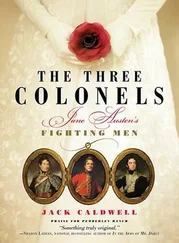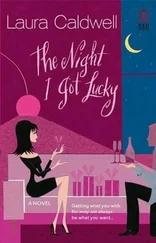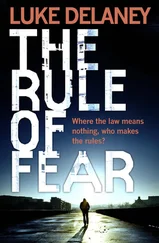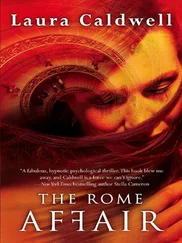Before he can answer my question, a knock comes at the door.
You moved, Gil says, entering with the club steward.
He stops short, sizing up Paul's room like a man peering into a women's bathroom, sheepish but intrigued. The steward places two settings in cloth napkins on a table, finding patches of space between the books. Between them, they're carrying two plates of Ivy Club china, a pitcher of water, and a basket of bread.
Warm rustic bread, the steward says, putting the basket down.
Steak with peppercorns, Gil says, following suit. Anything else?
We shake our heads, and Gil takes one last look at the room, then returns back upstairs.
The steward pours water into two glasses. Would you like something else to drink?
When we say no, he vanishes too.
Paul serves himself quickly. Watching him eat, I think of the Oliver Twist impression he did the first time we met, the little bowl he made with his hands. Sometimes I wonder if Paul's first memory of childhood is of hunger. At the parochial school where he was raised, he shared the table with six other children, and meals were always first come, first served, until the food ran out. I'm not sure he ever escaped that mentality. One night our freshman year, back when we all took meals together in the dining hall of our residential college, Charlie joked that Paul ate so fast you'd think food was going out of style. Later that night Paul explained why, and none of us joked about it again.
Now Paul extends his arm for a piece of bread, caught up in the joy of eating. The smell of food wrestles with the old mildew stink of books and the smoke of the fire, in a way I might've enjoyed under different circumstances. But here, now, it feels uncomfortable, different memories sewn together. As if he can read my mind, Paul becomes conscious of his reach and looks bashful.
I push the basket toward him. Eat up, I say, scraping at the food.
Behind us, the fire sputters. Over in the corner is an opening in the wall, the size of a large dumbwaiter: the entrance to the steam tunnels, the one Paul prefers.
I can't believe you still crawl through that.
He puts down his fork. It's better than dealing with everyone upstairs.
It feels like a dungeon down here.
It didn't bother you before.
I sense an old argument reviving. Paul quickly wipes his mouth with a napkin. Forget it, he says, putting the diary onto the table between us. This is what matters now. He taps the cover with two fingers, then pushes the little book toward me. We have a chance to finish what we started. Richard thinks this could be the key.
I rub at a stain on the desk. Maybe you should show it to Tart.
Paul gapes at me. Vincent thinks everything I found with you is worthless. He's been pushing me for progress reports twice a week, just to prove I haven't given up. I'm tired of driving to the Institute every time I need his help, and having him say this is derivative work.
' Derivative ?
And he threatened to tell the department I'm stalling.
After everything we found?
It doesn't matter, he says. I don't care what Vincent thinks. He taps the diary again. I want to finish.
Your deadline is tomorrow.
We did more together in three months than I did alone in three years. What's one more night? Under his breath, he adds, Besides, the deadline isn't what matters.
I'm surprised to hear him say it, but the jab of Taft's rejection is what lingers. Paul must've known it would. I feel more pride in the work I did on the Hypnerotomachia than in all the work I did on my own thesis.
Taft's out of his mind, I tell him. No one's ever found that much in the book before. Why didn't you request an advisor change?
Paul's hands begin shredding the bread into little pellets, rolling them between his fingers. I've been asking myself the same thing, he says, looking away. Do you know how many times he's bragged to me about ruining the academic career of 'some moron' with his peer reviews or tenure recommendations? He never mentioned your father, but there were others. Remember Professor Macintyre from Classics? Remember his book about Keats's 'Ode on a Grecian Urn'?
I nod. Taft wrote an article on what he perceived to be the declining quality of scholarship at major universities, using Macintyre's book as a primary example. In three paragraphs Taft identified more factual errors, misattributions, and oversights than two dozen other scholars had found in their own book reviews. Taft's implicit criticism seemed to be aimed at the reviewers, but it was Macintyre who became such a laughingstock that the university pruned him from the departmental ranks at the next tenure review. Taft later admitted that he was just getting even with Macintyre's father, a Renaissance historian who'd given one of Taft's own books a mixed review.
Vincent told me a story once, Paul continues, voice growing quieter. About a kid he knew growing up, named Rodge Lang. Kids at school called him Epp. One day a stray dog followed Epp home from school. Epp ran, but the dog kept following him. Epp threw part of his lunch to the dog, but the dog wouldn't leave him alone. Finally he tried to scare the animal off with a stick, but the dog just kept following.
After a few miles, Epp started to wonder. He led the dog through a briar patch. The dog followed. He threw a rock at the dog, but the dog wouldn't back away. Finally Epp kicked the dog. The dog didn't run off. Epp kicked it again, and again. The dog wouldn't move. Epp kicked the dog until it was dead. Then he picked it up and brought it to his favorite tree, and buried it there.
I'm almost too stunned to answer. What the hell's the moral of that ?
According to Vincent, that's when Epp knew he'd found a loyal dog.
A silence unfolds.
Was that Taft's idea of a joke?
Paul shakes his head. Vincent told me a lot of stories about Epp. They're all like that.
Jesus. Why?
I think they're supposed to be some kind of parable.
Parables he made up?
I don't know. Paul hesitates. But Rodge Epp Lang also happens to be an anagram. A rearrangement of the letters in 'doppelganger.'
I feel sick. Do you think Taft did those things?
To the dog? Who knows. He might've. But his point was that he and I have the same relationship. I'm the dog.
So why the hell are you still working with him?
Paul begins fidgeting with the bread again. I made a decision. Staying with Vincent was the only way I could finish my thesis. I'm telling you, Tom, I'm convinced this is even bigger than we thought. Francesco's crypt is this close. No one has made a find like this in years. And after your father, no one had done more work on the Hypnerotomachia than Vincent. I needed him. Paul throws the crust onto his plate. And he knew it.
Gil arrives in the doorway. I'm done upstairs, he says, as if we've been waiting for him to finish. We can go now.
Paul seems glad to end the conversation. Taft's behavior is a reproach to him. I rise and begin to bus my plates.
Don't worry about those, Gil says, waving me off. They'll send someone down.
Paul wipes his hands together briskly. Strings of the bread roll up on his palms, and he sloughs them like old skin. We both follow Gil out of the club.
The snow is coming down much harder than before, so thick that I feel I'm watching the world through patches of static. As Gil navigates the Saab westward, approaching the auditorium, I look in the side mirror at Paul, wondering how long he's been keeping all this to himself. We pass between streetlights in the dark, and for short pulses of time I can't see him at all. His face is just a shadow.
The fact is, Paul has always kept secrets from us. For years he hid the truth about his childhood, the details of his parochial school nightmare. Now he's been hiding the truth about his relationship with Taft. Close as he and I are, there's a certain distance now, a feeling that while we have a lot in common, good fences still make good neighbors. Leonardo wrote that a painter should begin every canvas with a wash of black, because all things in nature are dark except where exposed by the light. Most painters do the opposite, starting with a whitewash and adding the shadows last. But Paul, who knows Leonardo so well you'd think the old man slept in our bottom bunk, understands the value of starting with the shadows. The only things people can ever know about you are the ones you let them see.
Читать дальше












